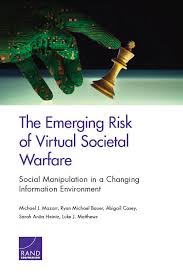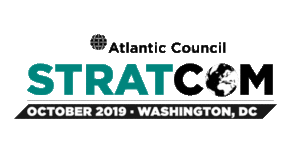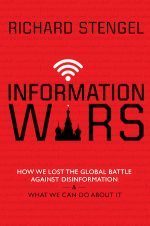Virtual societal warfare is a new category of cyberaggression that seeks to manipulate or disrupt the information essential for the effective functioning of economic and social systems, RAND researchers Michael J. Mazarr, Ryan Michael Bauer, Abigail Casey, Sarah Heintz, Luke J. Matthews write in a new analysis.
“As significant as social manipulation efforts have already been, the United States and other democracies have only glimpsed the tip of the iceberg of what these approaches may someday
be able to achieve,” according to The Emerging Risk of Virtual Societal Warfare: Social Manipulation in a Changing Information Environment.
 Several initial avenues of response in the face of this growing risk include building forms of inoculation and resilience against the worst forms of information-based social manipulation to …
Several initial avenues of response in the face of this growing risk include building forms of inoculation and resilience against the worst forms of information-based social manipulation to …
- Better understand the workings and vulnerabilities of emerging technologies, especially artificial intelligence–driven information channels, virtual and augmented reality, and algorithmic decision-making. If the United States and other democracies are not careful,
advances in the private application of these technologies will race ahead of policy and even understanding, creating intense vulnerabilities for democratic societies. The dangers of virtual societal warfare and the specific emerging dependence of democratic societies and advanced economies on such information applications point to the need for research on their potential implications and steps democracies can take to protect themselves. … - Begin building forms of inoculation and resilience against the worst forms of information-based social manipulation. Campaigns should not limit themselves to countering outside claims after they occur, but rather take steps in advance to create resilience against such claims and campaigns. Forewarning may be more effective than post hoc treatment of established narratives. RTWT

TechCrunch
Catalonia’s secessionist protests are being programmed by a new online activist group, calling itself Tsunami Democràtic. Reportedly, a ‘technical elite‘ has been preparing to reboot Catalonia’s independence movement by developing bespoke, decentralized high-tech protest tools, TechCrunch reports:
A source with knowledge of Tsunami Democràtic, speaking to TechCrunch on condition of anonymity, told us that “high level developers” located all around the world are involved in the effort, divvying up coding tasks as per any large scale IT project and leveraging open source resources (such as the RetroShare node-based networking platform) to channel grassroots support for independence into a resilient campaign network that can’t be stopped by the arrest of a few leaders. Additional waves of protest are being planned and programmed via a bespoke Tsunami Democràtic app that was also released this week.
Cybersecurity remains a critical and pressing issue in Ukraine and worldwide as cyberattacks on public and private institutions become more sophisticated, the International Foundation for Electoral Systems (IFES) adds. Civil society groups are especially at risk of cyberattacks because the populations with whom they work are less likely to know international best practices of cybersecurity. Which is why IFES and the Central Election Commission of Ukraine have developed cyber-hygiene awareness training. RTWT
Stung by Kremlin interference in elections, governments have made progress in investigating past intrusions, counteracting ongoing influence, and preparing for future malign operations, the Atlantic Council adds. However, even as Western democracies work to construct responses and build resilience, the Kremlin and other state and non-state actors continue to develop new tools to spread false narratives and manipulate the political discourse.
 The Atlantic Council hosts the third annual Global Forum on Strategic Communications (StratCom 2019) in Washington, DC on October 23-24, 2019. the event provides an opportunity for analysts and activists to learn best practices, share innovations, and engage with the policy community in order to counter bad actors seeking to influence and destabilize democratic institutions through disinformation.
The Atlantic Council hosts the third annual Global Forum on Strategic Communications (StratCom 2019) in Washington, DC on October 23-24, 2019. the event provides an opportunity for analysts and activists to learn best practices, share innovations, and engage with the policy community in order to counter bad actors seeking to influence and destabilize democratic institutions through disinformation.
- October 23 is on-the-record and open to press upon accreditation, and will feature panels on: Understanding China’s Information Operations; (featuring Shanthi Kalathil, senior director of the National Endowment for Democracy’s International Forum for Democratic Studies); What and What Not to Regulate; Confronting Everyday Falsehoods; and Personal Data: What, Who, How, and Why?
- October 24 features a series of off-the-record workshops, including: Back to Elections: Lessons from 2019; Deep, Shallowfakes: What Should We Fear and What to Do?; Private Messaging Apps; Fake Personas, Fake Engagement: The Marketplace for Social Media Manipulation; Cyber Capabilities: A Tool to Fight Disinformation?; and Media: Success Stories from the Newsroom.
Panelists at a recent Council on Foreign Relations forum (above) discussed “Stemming the Tide of Global Disinformation,” specifically, the extent of disinformation, its impact on democracy, and what can be done to prevent, mitigate, and stop its spread.
 Speakers:
Speakers:
- Amanda Bennett, Director, Voice of America
- Richard Stengel, Former Undersecretary for Public Diplomacy and Public Affairs, U.S. Department of State; Author, Information Wars: How We Lost the Global Battle Against Disinformation, and What We Can Do About It
Presider: Nicholas Thompson, Editor in Chief, Wired Magazine.







